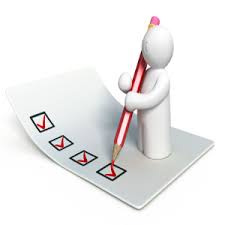When servers work as expected, no one notices that they’re there. The minute a server stops fulfilling its duty, it can seem like the sky is falling. Many businesses – especially small businesses – live and die by the performance of their servers. That’s why choosing the right server and the appropriate configuration is so important.
Servers should be reliable, obviously. Business owners should also expect their servers to be secure, efficient and scalable. Secure servers protect company data and can regulate many business functions. Efficient server utilization helps keep costs where they should be. Scalable servers enable businesses to grow into themselves and can also help with daily operation. They’re there to help the business, not disrupt it.
What to Consider
- Your primary concern is functionality. Obviously you wouldn’t consider any servers that cannot meet the requirements of your business.
- Find a server at the right price for your business. Once you have verified that a server meets your functional requirements you must also make sure you aren’t paying for anything you won’t utilize.
- Think about whether you should rent or buy your server. Renting can be a great way to avoid headaches, but it can also put some severe limitations what you’re able to do. This consideration must circle back to functionality.
- Understand what hardware you will need. If you choose to buy, you must account for the physical server itself. You will be responsible for determining whether your existing infrastructure will be able to power your servers, and whether that same infrastructure can support growth. You also have to decide where to keep physical servers. Many businesses today are turning to cloud-based servers because they are able to receive adequate functionality without the responsibility of physical hardware.
- Find out about any additional software your server(s) may require. One of the major considerations with regard to software is whether you want to run servers using a Windows or Linux operating system. Find out everything you’ll need and understand your total cost before making any purchase decisions. Servers don’t have to be expensive but depending on how you’re using them, the costs can add up quickly
- Businesses must also think about integrating existing servers into all new hardware and software decisions. If there is already a server or network in place, then any new purchases must be made with the mind of expanding what’s already there.
- When accounting for both hardware and software, you must take ongoing maintenance into account. Understanding what will be required, including planned downtime, to keep a server functional is a key part of making the decision about which server is right for your business.
- One of the primary functions for which a business might use a server is data security. Ask yourself what you’re looking to protect and how you’re going to do that.
- The idea of scalability is crucial when deciding which server is the best fit. Businesses should always choose servers that enable growth rather.
- Support is the final, and perhaps most important, factor to consider when purchasing a server for your business. To get the most out of any server, a business will have to rely on technical support at some point. Read customer reviews and ask around in hosting forums about different server companies’ support early on. This should be a major influence in the decision-making process.
Why These Considerations Are Important
All businesses have goals and the right technology, especially servers, can be a tremendous advantage in the pursuit of those goals. Servers can play a major role in growth but a poor decision can be damaging. Consider each of these factors carefully before making any decision that may have an impact on your business.
Have you been looking for a new server? Tell us about your search in the comments below.

